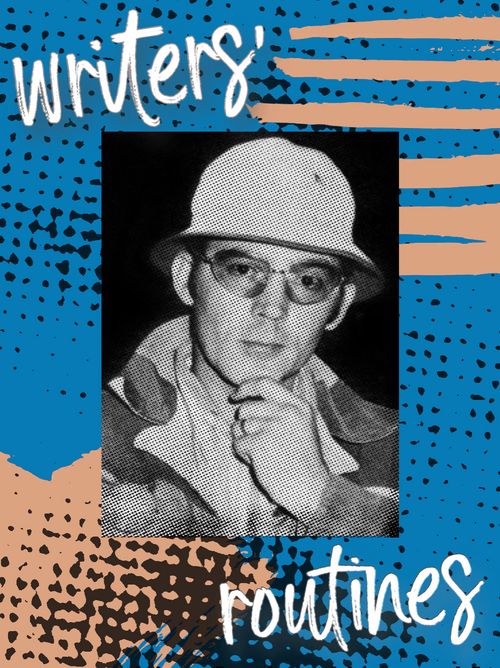Do great writers' routines make a difference?
Nov 02, 2021 · 2 mins read
0
Share
Writing is a challenging craft, involving a lot of mental gymnastics to work out the best, or most successful, creative approaches. How to use your time is key to this and many great writers have their own distinct, rigid, and sometimes baffling, routines they swear by.
Save
Share
But do they work? Do these routines actually impact the creative process?
For Haruki Murakami, it does. “The repetition itself becomes the important thing,” he says. “It’s a form of mesmerism. I mesmerise myself to reach a deeper state of mind.”
Save
Share
WH Auden felt his writing benefited from routine hugely. “The surest way to discipline passion is to discipline time,” he said. “Decide what you want, or ought, to do during the day, then always do it at exactly the same moment every day, and passion will give you no trouble.”
Save
Share
It’s dangerous to link drug consumption with attaining otherwise unreachable levels of creativity but for Hunter S Thompson his daily cocktail of LSD, booze, weed and cocaine gave his writing the wired, wild hedonism it was celebrated for.
Save
Share
E.B White embraced chaotic surroundings. Suggesting that an ideal writing environment, or routine, didn’t exist and trying to shape one could be a waste of precious time. “A writer who waits for ideal conditions under which to work will die without putting a word on paper.”
Save
Share
Zadie Smith believes waiting - and not forcing herself to write new material daily - has been key to her work. “I think you need to feel an urgency,” she says. “Otherwise when you read it, you feel no urgency either. I don’t write unless I really feel I need to.”
Save
Share
For John Steinbeck his daily routine was key in reaching the end of a book. “Abandon the idea that you are ever going to finish,” he advised. “Lose track of the 400 pages and write just one page for each day. Then when it gets finished, you are always surprised.”
Save
Share
Fahrenheit 451 author Ray Bradbury’s routine of repeated short story writing helped him to grow into a novelist. “Write one short story a week and at the end of the year you have 52 short stories,” he advised. “And I defy you to write 52 bad ones. It can’t be done.”
Save
Share
Salmon Rushdie believes sleep is integral and that writing first thing, once immediately awake, captures a unique place the brain is in. He believes there is a “little package of creative energy that was nourished by sleep” that he needs to capatilise on.
Save
Share
“I get up while it’s dark and watch the light come. This comprises my preparation to enter a space I call nonsecular. Writers all devise ways to approach that place they expect to become the conduit, or where they engage in this mysterious process." - Toni Morrison
Save
Share
0
